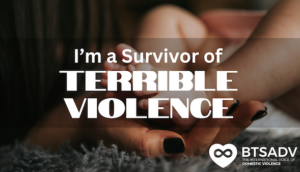By Jessica Christian
Protecting Your Privacy Online as a Domestic Violence Survivor
For survivors of domestic violence, the internet can be both a lifeline and a risk. While it connects you to supportive communities and resources, abusers can exploit digital tools to harass or monitor you. Here are key steps to secure your privacy and stay safe online:
Secure Your Devices
- Change Your Passwords Regularly: Use unique, strong passwords and consider a password manager.
- Update Software & Apps: Regular updates protect against security flaws.
- Install a Security App: Use apps that scan for spyware or monitoring tools.
Manage Your Online Presence
- Review Privacy Settings: Ensure only trusted individuals see your social media posts.
- Limit Location Sharing: Disable location services to avoid tracking.
- Use a Pseudonym: Consider using a nickname or avatar for online interactions.
- Avoid Personal Info in Bios: Do not share your birthdate, hometown, or current location.
Secure Your Communications
- Use Encrypted Messaging Apps: Apps like Signal or WhatsApp provide end-to-end encryption.
- Set Up a New Email Account: Create a secure email for sensitive communications.
- Be Wary of Phishing Scams: Avoid suspicious links and requests for personal info.
Protect Your Digital Footprint
- Delete Old Accounts: Remove unused accounts to reduce risk.
- Use Incognito Mode: Prevent your device from storing browsing history.
- Consider Using a VPN: Mask your IP address for extra security.
Plan for Emergencies
- Create Backup Accounts: Have secondary accounts ready if your primary ones are compromised.
- Store Important Documents Securely: Use cloud storage with strong security for vital documents.
- Know How to Factory Reset Devices: Be prepared to reset compromised devices.
Seek Professional Help
- Consult a Cybersecurity Expert: Get personalized advice for securing your devices.
- Reach Out to Support Organizations: Seek help from groups that assist domestic violence survivors with online safety.
By following these steps, you can regain control of your online privacy and enhance your safety. Always remember, it’s okay to ask for help and take it one step at a time.
Keywords: domestic violence, cybersecurity, online safety, privacy protection, survivor support, encrypted messaging, VPN, password manager, digital footprint, BTSADV
Hashtags: #CyberSafety #BreakTheSilence #DomesticViolenceAwareness #BTSADV #PrivacyProtection










